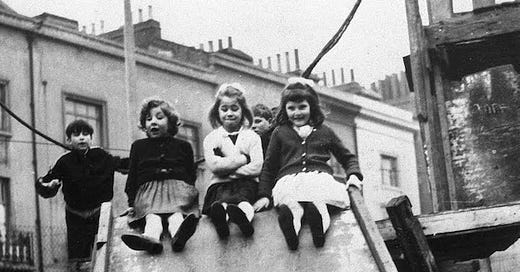Interview: Paul Almond on Starting the ‘Up’ Series and Watching It Grow for Half a Century
This interview was originally published on the Documentary Channel Blog on January 10, 2013.
Almost 50 years ago, Canadian filmmaker Paul Almond, while employed by Granada Television in the UK, interviewed a bunch of young children for an episode of World in Action. The one-off special, titled Seven Up!, wound up spawning a very popular series of documen…
Keep reading with a 7-day free trial
Subscribe to Nonfics to keep reading this post and get 7 days of free access to the full post archives.



